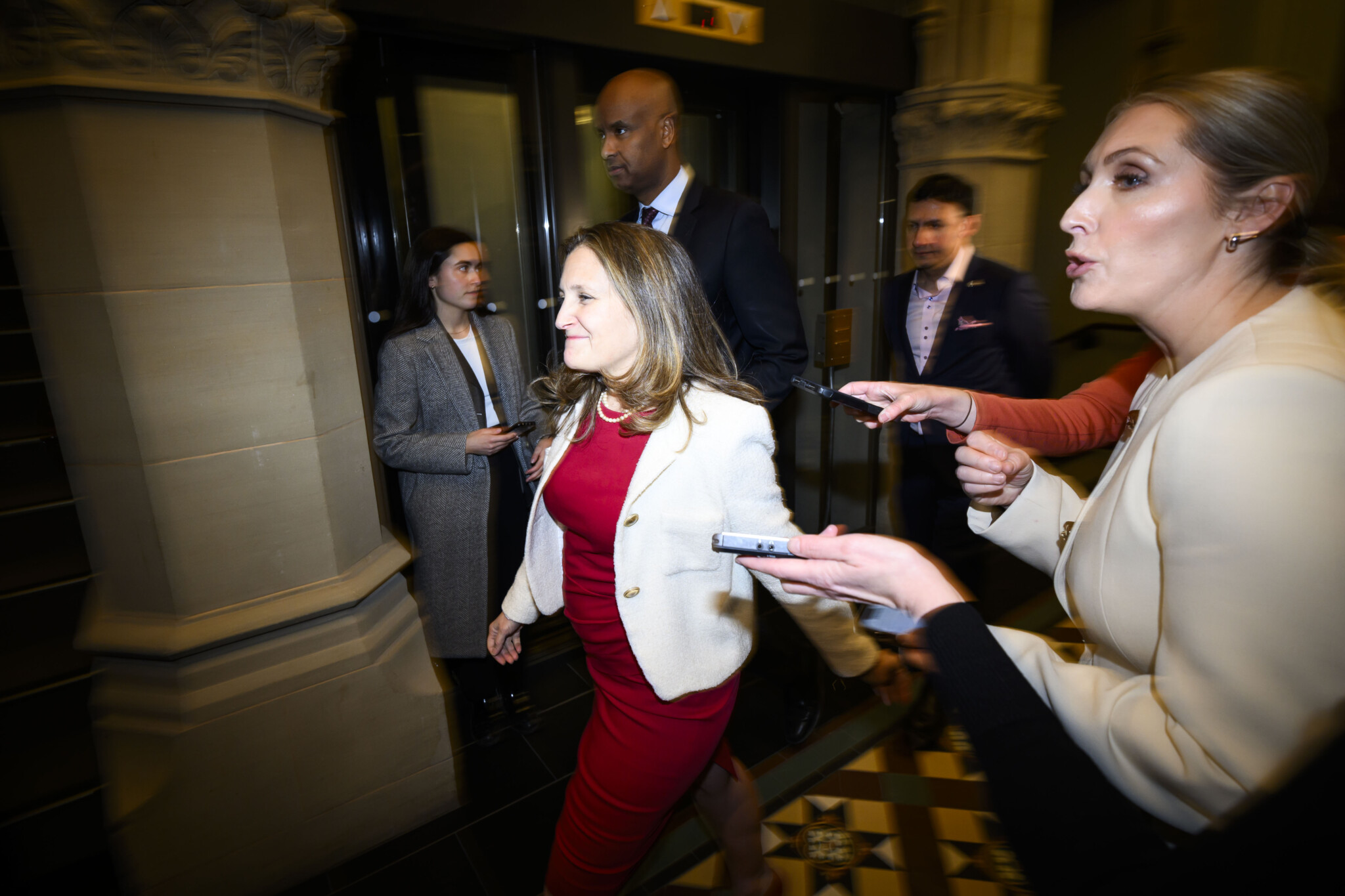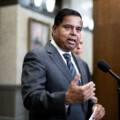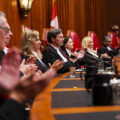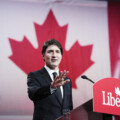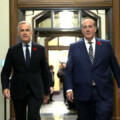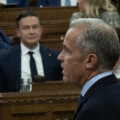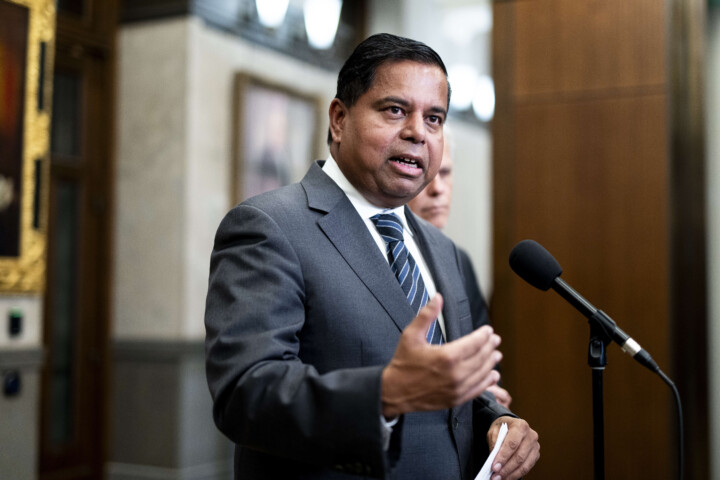Welcome to my Full Press column, a bi-weekly round-up of the interesting stories in media worth paying attention to. Be sure to catch The Hub’s accompanying Full Press podcast.
Rosemary Barton makes herself the story
Maybe Rosie Barton just didn’t sleep well, but my goodness did she lay the lumber on Liberal leadership candidate Chrystia Freeland.
The former finance and deputy prime minister was a guest on the Feb. 2 edition of CBC’s Rosemary Barton Live. It was her December resignation that, combined with fellow leadership candidate Mark Carney’s still mysterious involvement in the plot to replace her, triggered the resignation of Prime Minister Justin Trudeau, now a sad, phantom-like figure.
Barton, her patience exhausted, aggressively spoke over and interrupted Freeland almost from the start of the interview. Yes, the latter was engaging in some of the usual political blah, blah, but there seemed little reason for the smackdown. To be clear, asking tough questions and demanding answers should be part of a journalist’s job, but I can’t say we ever saw any of this in a Barton interview with Justin Trudeau. And it was unpleasant enough that Barton became the most compelling character in the interview—which I’m pretty sure is not how it’s supposed to be.
Freeland, along with other leadership candidates such as Karina Gould, is struggling for air time. This was obvious in a CBC Radio newscast I listened to Thursday. The report opened with how Carney anticipated renegotiating CUSMA with the Trump regime.
Fair enough, one supposes—but left unmentioned was that there actually are other candidates seeking to replace Trudeau. Mentioning them should be standard journalistic practice in any election—party or otherwise. CBC’s standards and practices, after all, demand that those in the news be treated “even-handedly.” So, that means that if Barton ever does get a sit-down with candidate Carney, we should expect the same level of grumpiness Freeland enjoyed. And, honestly, everyone, can you at least mention the other candidates for the Liberal leadership? Kicking the women to the sidelines in favour of the pale male is not at all a good look for so many organizations that have bragged about their commitments to diversity.
Liberal leadership candidates vie for Canadian votes—in American media
Speaking of sit-downs, CBCNN Power & Politics host David Cochrane deserves credit for pointing out to viewers last week that Carney has not only been avoiding most Canadian media, but both he and Freeland—only one of whom is an MP and neither is in cabinet—are appearing on foreign media as if they speak for Canada.
“What do we make of that?” Cochrane wondered to his panel on Wednesday. “That people who don’t speak for the government are out there speaking for the country?
“At least the premiers are elected,” he added, before noting that Carney, “hasn’t talked with me, Rosie, Vassy, Mercedes, Patrice Roi, none of it.
“Which is interesting if you want to lead the country…this is the party that talks about the importance of Canadian media and how it must be protected, but I digress.”
It is refreshing to hear these questions. Hopefully, we will soon hear one asked of the prime minister as to why it’s OK for members of cabinet to be, according to Carney, (who, remember, is unelected and never has been) briefing him daily on matters of state. Or, are there also daily briefings for all Liberal candidates? Or, does the PMO have its thumb firmly on the scale? The public has a right to know these things.
Unnecessary anonymity
Former ABC/CBC/CTV and Global National journalist and presenter Kevin Newman has issued a call for volunteers to help fact-check the information that pours, without the benefit the gate-keeping legacy media perform, across the internet.
Good for him, there is a lot of nonsense out there. Yet I am hesitant as to what purpose this will serve given that—in my experience at least—there is no shortage of people, many of whom are not journalists, on platforms such as X and Facebook who are quick to correct errors of fact or omission.
Hopefully, this initiative will also take on the increasingly weak explanations given for the protection of unnamed sources.
Traditionally, anonymity was granted only to those sources who might be imperiled should their names be public. This has grown much sloppier in recent years, particularly in political reporting. Here are a couple of examples that don’t come close to meeting that standard.
Radio-Canada says sources aren’t being identified because “they were speaking about internal party matters.” Huh?
And here, a senior government source is quoted, anonymously, because they were “not authorized to speak on the record.”
Not authorized by who? The government that journalists are supposed to be holding to account? The one upon whom they depend for funding?
Media have to decide at some point whose trust they value more—their source’s or the public’s.
Reporters and editors with spine should be pushing back—hard—to get names on the record and not playing the role of dupes to political manipulators. Readers aren’t stupid. Stop treating them as if they are.
A final plug (or two)
Our podcast, Full Press, has attracted some 10,000 listeners so far, so please check it out on Thursday. Also, please consider subscribing—it’s free unless you choose otherwise—to my Substack, The Rewrite, for more commentary aimed at the good, the bad, and the ugly aspects of journalism.
